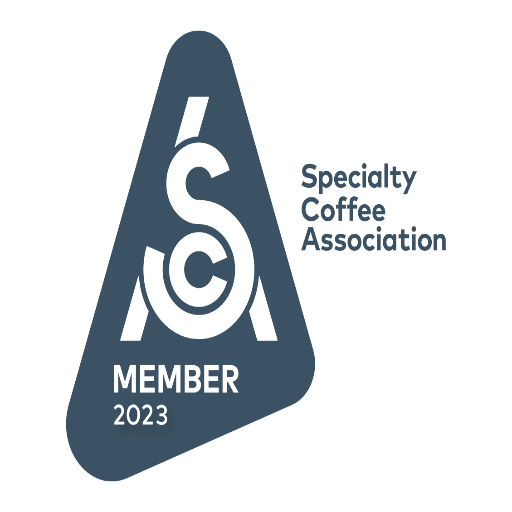We interview Dawit Degu who gives an insight into his life, his business and explains some of the complexities of working within the Ethiopian coffee market. We have been working with Dawit since 2017 and before this we worked with his father Degu Assefa until he retired, Degusons Trading PLC was founded in March 2016.
How did you come to work in coffee?
Coffee has been in our family for many years. Both my parents have been working in the Ethiopian Coffee industry for over 46 years. My mother, Aster Mengesha has a coffee roastery named Aster Bunna and my father Degu Assefa and his partner Mr. Geoffrey Wetherell had a coffee exporting company named Ambassa Enterprises PLC. When I was a young boy my father used to take me and my brother to the coffee cleaning factory. I used to spend time at the factory observing how the machines separated the good beans from the defective beans. I really enjoyed spending time at the factory running around and playing with the employees. As far as I can recall, I was always fascinated in coffee and the business.
After graduating with a Bachelor of Science in International Business from Oklahoma State University, I returned to Ethiopia and joined Ambassa Enterprises PLC to gain exposure to the international business market. This is where I was officially introduced to coffee and coffee trading. In about a year’s time, I was a certified coffee cupper and grader, and trading coffee alongside my father and his partner. My parents and the employees of Ambassa Enterprises PLC were invaluable in teaching me many things about coffee. After working for Ambassa for 2 years, I went back to the U.S to pursue my masters in Entrepreneurship.
Again, after completing my masters in Entrepreneurship, again I returned to Ethiopia but this time to work with Aster Bunna. My mother’s coffee roastery in Addis Ababa. Together with my mother we rebranded the business and expanded our target market well inside and outside Addis Ababa. We soon began exporting roasted coffee around the world and Aster Bunna now one of the leading women owned roasteries in Ethiopia.
But something brewing inside me was my childhood dream to establish my own coffee producing and exporting company. As my father’s retirement came close, I saw an opportunity to utilize his extensive experience and network in the coffee industry and academic knowledge in entrepreneurship. So, I took a leap of faith and decided to bootstrap and pursue my dream to establish my company. Along with my father as our advisor and chairman and my two brothers (with Degu and his sons), I was finally able to establish a coffee exporting company, hence the name Degusons Trading PLC.
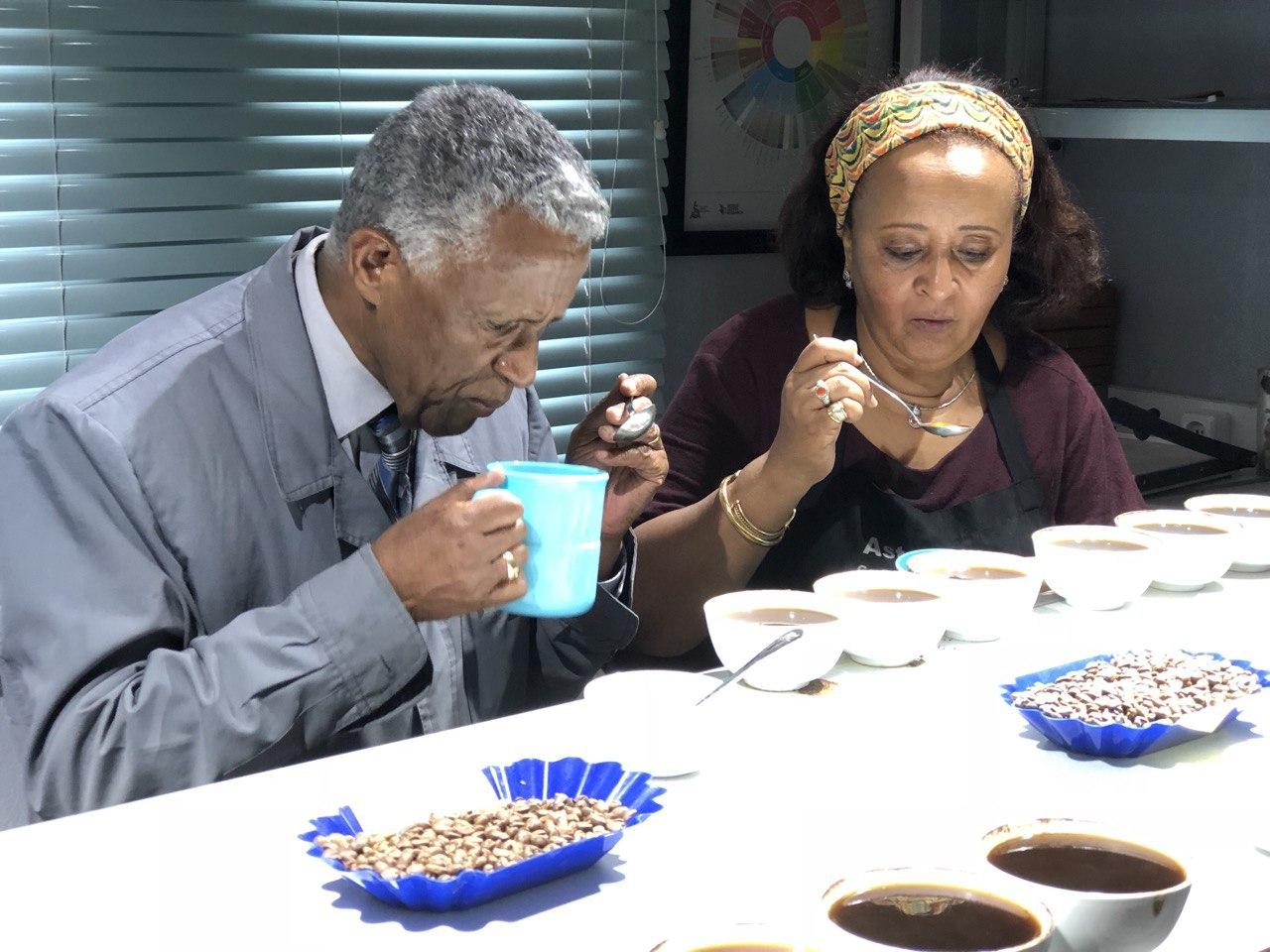 Aster and Degu
Aster and Degu
What does an average day at work look like for you?
Briefly put, mornings always start with a cup of Aster Bunna Macchiato. Aster Bunna is my mother’s roastery and coffee shop located in the same building as Degusons. After macchiato the day begins! We usually check on both NY C and local ECX prices. I meet with our senior staff to plan and organize the day. I also spend time in our laboratory cupping and grading samples of our stock.
Morning is also the best time to communicate with clients in far east Asia and Australia. If I have coffee to sell for the local market, I will go to the ECX since local trades are scheduled for morning time. If not, I head to the warehouse/factory to monitor cleaning progress, inspecting quality, checking inventories, receiving/dispatching shipments. Afternoons are mostly spent at ECX buying coffees to fulfill contracts or to purchase stock depending on the market predictions. The evening is the best time to communicate with our clients in North America.
What do you like to do when you’re not working?
I genuinely enjoy traveling and exploring new places. The fact that I am away from my office allows me to detach from the work environment and enjoy the moment. If I decide to rest and if am in Addis Ababa, there is a good probability that I will end up in my office (even on Sundays)! So, traveling has been a good remedy when not working.
One place I recently discovered is Nech Sar National Park (Arba Minch, South Western Ethiopia). The pristine spring waters that are drinkable, the dense forests where you can’t see the sun above, mountains, lakes, and wildlife are simply amazing. Family is also very important and I enjoy spending time with them whenever possible.
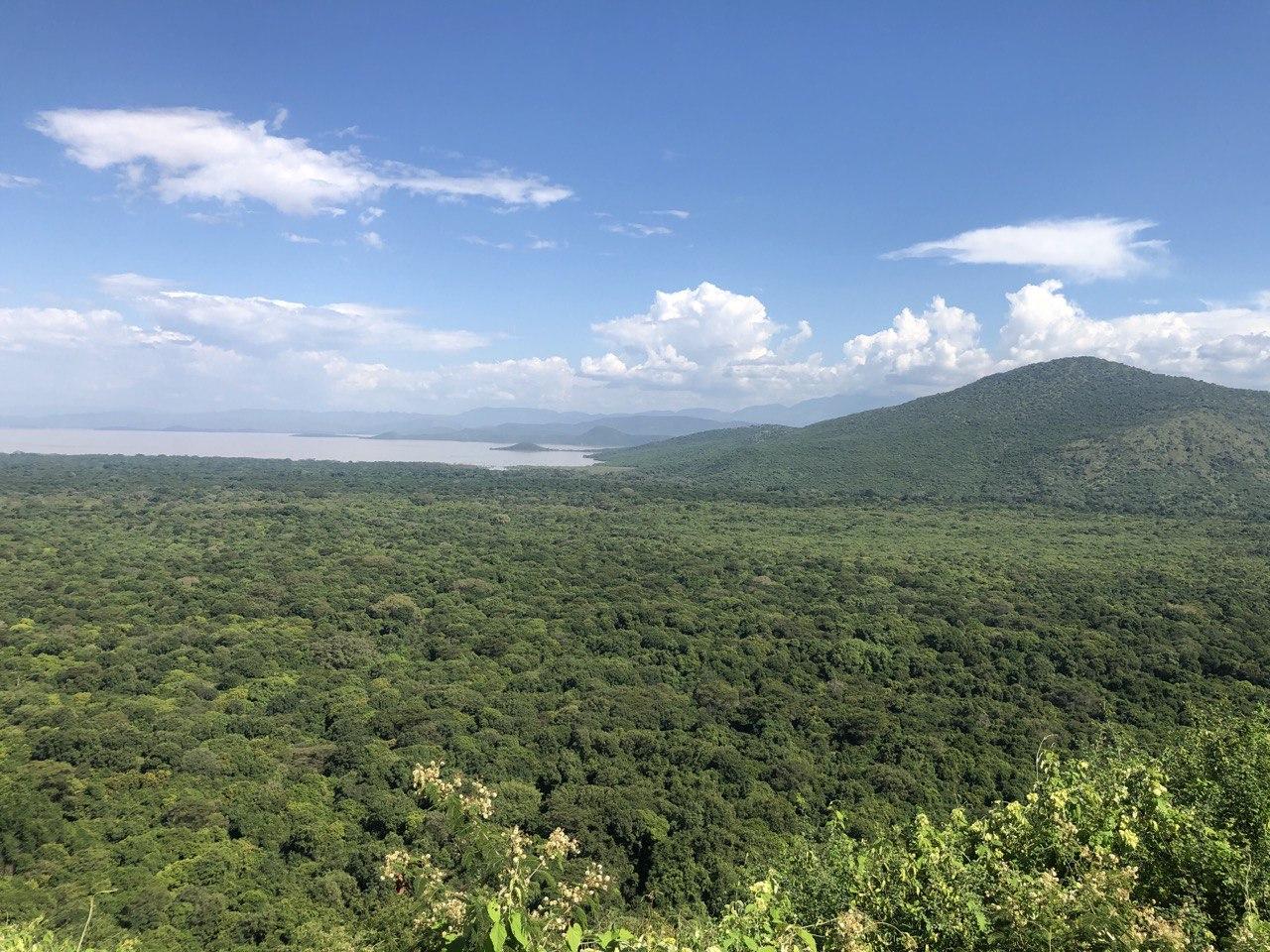 Nech Sar National Park
Nech Sar National Park
What are your hopes for the future?
My hope for the future is to integrate upstream of the coffee value chain to reach the farms and farmers. This will allow Degusons in developing new specialty coffee types that are traceable to the farm. It will also enable us to bring change by creating new sources of income to the farmers by helping them to become productive in their coffee farms and also diversify into other agro-industry sectors such as beekeeping so that they have a constant income through out the year.
Can you explain a bit about how Degusons sources coffee in Ethiopia?
Mostly, we source our coffee from the Ethiopia Commodity Exchange. Since last year the ECX has been able to work on the traceability issue. Today we are able to identify the source of the coffee up to the washing station. This is a major improvement by the ECX. However, for our specialty coffee, we have washing station owners with farms from which we source our coffee.
Do you visit the farms you source coffee from?
Yes, I am always ready for traveling. We maintain good communication with our suppliers and visit farms and stations regularly. The best time to visit the farms and stations is during the coffee harvest season (November/December).
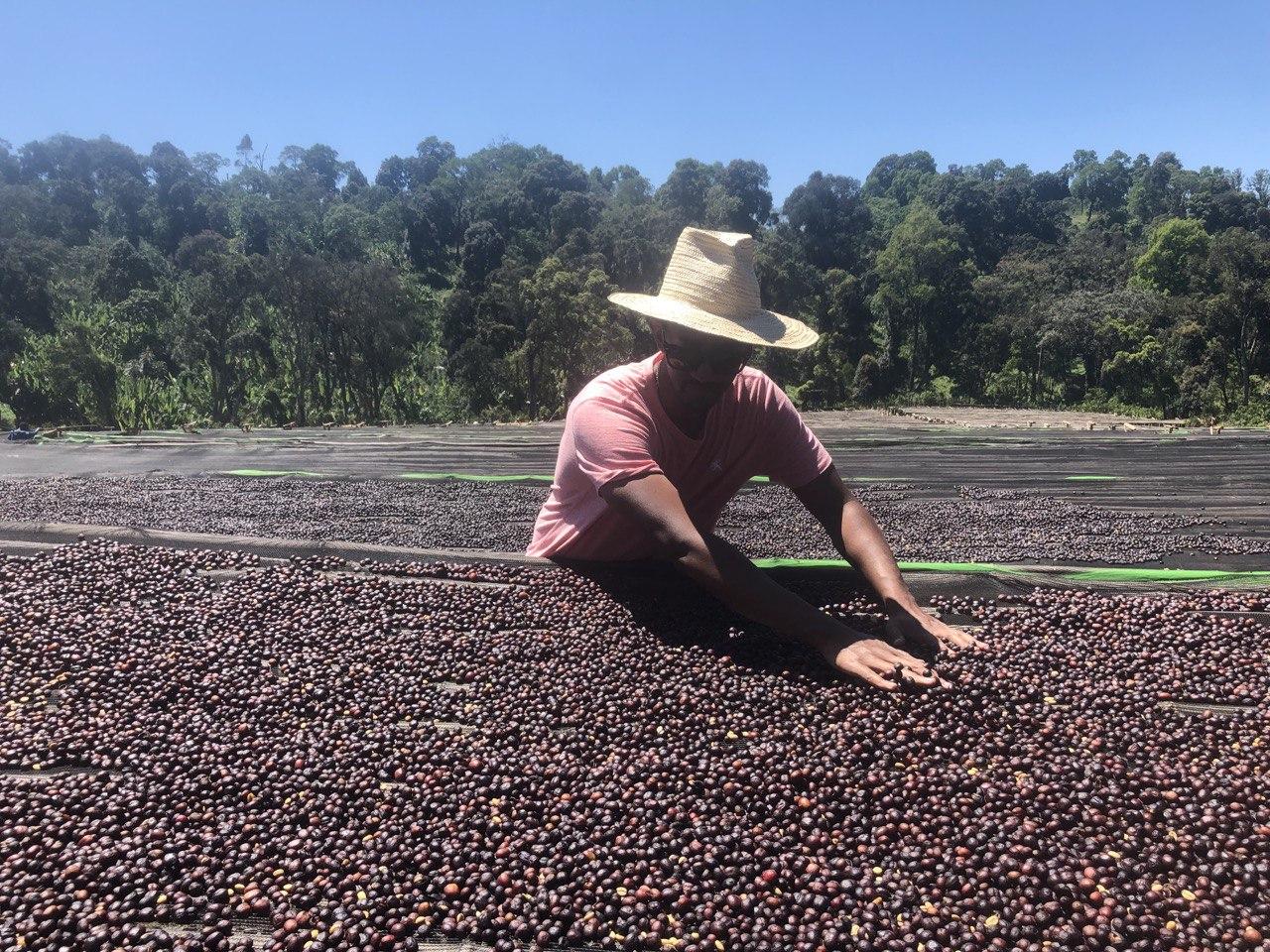 Dawit
Dawit
Ethiopia is probably the most famous coffee origin! To you, what makes Ethiopia unique as coffee origin?
For me, two key factors make Ethiopian coffee unique. One is our good Earth that created the perfect environment and conditions to grow these perfect fruits. The bright fragrance of a freshly roasted and ground coffee, the aroma and unique flavor of Ethiopian coffee is truly amazing for any coffee lover. It is simply a gift. The second one is the people. Coffee is deeply entrenched in our daily lives and culture. Our coffee ceremony is one example. It brings people together to socialize. And as you go to the different coffee growing regions in Ethiopia each has a unique taste and coffee ceremony!
What are the challenges with exporting coffee?
Coffee requires a good amount of capital to fulfill contracts. The more contracts a company enter into the more capital is required. Access to finance from banks is difficult as immovable assets are required as collaterals to be held by the banks in case of defaults on payments. Credit history and scores were just recently introduced as factors. But still it doesn’t guarantee securing loans.
Production facility is next. Land lease is extremely difficult to come across. As a result, many exporters do not own coffee cleaning factories. Consequently, they utilize the services of coffee cleaning plant. This would mean signing contractual agreements with cleaning factory owners that are reliable and trustworthy, with reliable machinery and storage systems. It would also require closer quality control.
Finally, it is the policies and selling price of coffee. As foreign exchange continues to become more and more scarce to import goods into the country, many importers entered the coffee export market to utilize the proceeds (US dollars) from the coffee exports to import goods. Their main competitive advantage is to offer significantly lower prices from existing exporters. But longtime exporters still maintain superiority in ensuring quality and unique blending techniques. Importers who now export coffee are able to export coffee at a loss as they are able to hedge losses from export by transferring it on to their imported goods. This has negatively affected the nation’s balance of trade and also created a continuously increasing inflation rate on imported goods, which is basically everything.
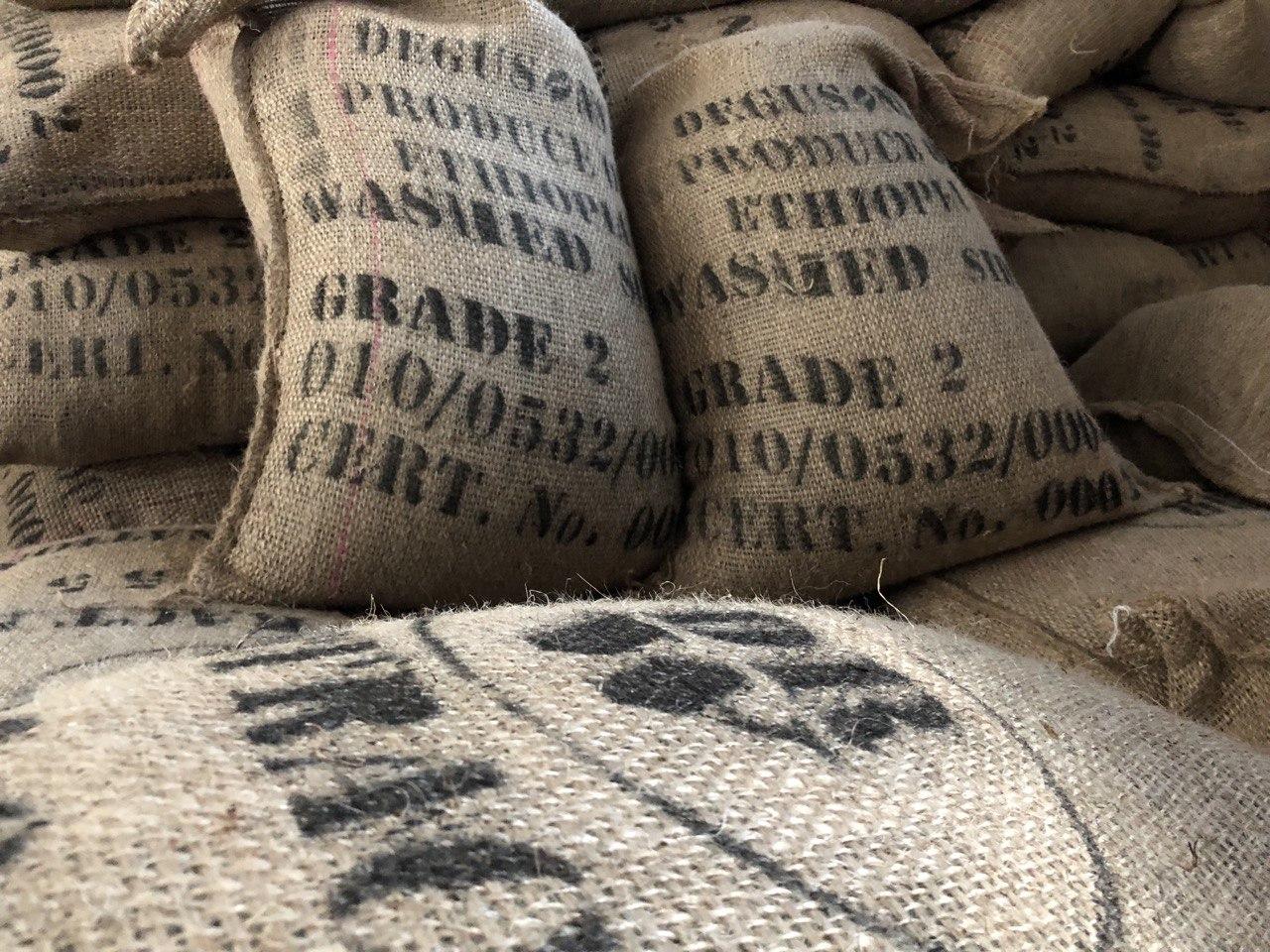
What do you believe the future looks like for coffee growing and selling in Ethiopia?
There are many challenges and opportunities facing Ethiopia today. And the most difficult challenge would be securing peace and uniting the people as we are now in a major political transition period. I believe it is every Ethiopians prayer to see a united, peaceful, and prosperous nation in the near future. We are witnessing changes and reforms in policies from the government side to boost exports and support the local businesses but there is much more to be done. Once this is achieved, the future looks bright!
Ethiopia as a country – do you have any favourite places of natural beauty, or places which come to mind which people who have never visited might not know about?
Yes, Mount. Ras Dashen (Northern Mountains), one other most breath-taking natural sights that will remain etched into anyone’s memory. It is the highest point in Ethiopia at 4,550 M. Since there is no light pollution, the night sky is one of the best to gaze at the stars!
Could you tell us more about the minimum price that the Coffee and Tea Authorities have issued?
The minimum price more stringent on other commodities traded at the ECX such as sesame. This has caused other problems. Since sellers have an established asking price ceiling and buyers (exporters) are willing to pay the daily ceiling price buyers are rushing to be the first to click on the “Buy” because there are an only limited number of lots available to go around.
On coffee, the minimum price although there are more control mechanisms expected to take effect in the near future, for now the exporters are expected to sell at prices that don’t vary much from established prices by the National Bank of Ethiopia. If prices vary greatly the contracts will not be registered.
Has the direct relationship with Farmers and buyers improved the coffee industry in the Ethiopia? Are there any negatives?
The vertical integration has solved most of the problems with traceability and fair pay to the producer. In fact, the producers have received a significantly higher price from previous years for their crops. Many large exporters have now engaged in vertical integration but this resulted in a profound effect on prices at ECX by creating a shortage in the supply of coffee to be deposited at the ECX warehouses and inflating the price. For instance, Sidamo coffee has now more than doubled in price from what it used to be at the same time last year. What some fear is that it could open a path for monopoly by larger exporters which could control the supply at the producing region.




